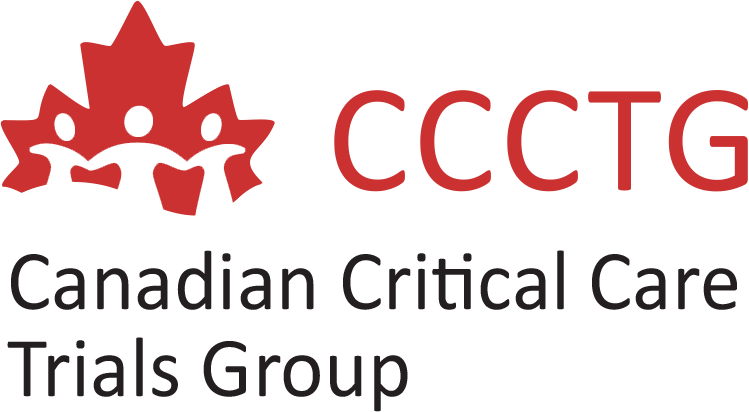Cerebral Oxygenation and Neurological Outcomes FOllowing CriticAL Illness Program (CONFOCAL)
Program Description
This program of research is aimed at understanding the association between cerebral oxygenation, delirium, and long-term cognitive outcomes in ICU survivors.
10-patient single-centre feasibility study
Delirium is common in critically ill patients and its presence is associated with increased mortality and increased likelihood of poor cognitive function among survivors. However, the cause of delirium is unknown. The purpose of this study was to demonstrate the feasibility of using near-infrared spectroscopy (NIRS) to assess brain tissue oxygenation in patients with septic shock, who are at high risk of developing delirium. This prospective observational study was conducted in a 33-bed general medical surgical intensive care unit (ICU).
View Publication: Brain Tissue Oxygenation in Patients with Septic Shock: a Feasibility Study
Single-centre protocol paper
Acute and chronic neurological complications amongst survivors of critical illness is common, however, the underlying etiology of this neurological dysfunction is unknown. This is the first study to use near-infrared spectroscopy to non-invasively measure brain tissue oxygenation, as a surrogate marker of cerebral perfusion, and correlate these values with subsequent neurological dysfunction. This single-centre prospective observational study will be performed in a 33-bed medical/surgical intensive care unit (ICU).
View Protocol: Assessing the relationship between brain tissue oxygenation and neurological dysfunction in critically ill patients: study protocol
Single-centre study
The purpose of this study was to test the hypothesis that poor brain tissue oxygenation (BtO2) during the first 24h of critical illness correlates with the proportion of time spent delirious. We also sought to define the physiological determinants of BtO2.
View Publication: Low brain tissue oxygenation contributes to the development of delirium in critically ill patients: A prospective observational study
Mechanistic substudy (Cerebral autoregulation)
Delirium is common during critical illness and is associated with morbidity and mortality, but its pathophysiology is unknown. We tested whether dysfunctional cerebral autoregulation (CA) contributes to the development of delirium.
View Publication: Dysfunctional cerebral autoregulation is associated with delirium in critically ill adults
Mechanistic substudy (physiological determinants of NIRS signal)
To maintain adequate oxygen delivery to tissue, resuscitation of critically ill patients is guided by assessing surrogate markers of perfusion. As there is no direct indicator of cerebral perfusion used in routine critical care, identifying an accurate strategy to monitor brain perfusion is paramount. Near-infrared spectroscopy (NIRS) is a non-invasive technique to quantify regional cerebral oxygenation (rSO2) that has been used for decades during cardiac surgery which has led to targeted algorithms to optimize rSO2 being developed. However, these targeted algorithms do not exist during critical care, as the physiological determinants of rSO2 during critical illness remain poorly understood.
View Publication: The physiological determinants of near-infrared spectroscopy-derived regional cerebral oxygenation in critically ill adults
NIRS and Delirium Systematic Review
The objective of this study was to assess the utilization of NIRS-derived rSO2 in critically ill patients outside the operating theater. We aimed to examine the relationship between rSO2 and neurological outcomes as well as to report rSO2 values in this population.
View Publication: Relationship Between Near-Infrared Spectroscopy-Derived Cerebral Oxygenation and Delirium in Critically Ill Patients: A Systematic Review
Multicentre Protocol (CONFOCAL-2)
This study will use near-infrared spectroscopy to non-invasively quantify regional cerebral oxygenation (rSO2) to assess the association between poor rSO2 during the first 72 hours of critical illness with delirium severity, as well as long-term sensorimotor and cognitive impairment among intensive care unit (ICU) survivors. Further, the physiological determinants of rSO2 will be examined.
Multicentre Feasibility (CONFOCAL-2)
Studies suggest that reduced cerebral perfusion may contribute to delirium development in the intensive care unit (ICU). However, evidence is limited because of factors including small sample size and limited inclusion of covariates. The objective of this study was to assess the feasibility of a multicenter prospective observational study using a multimodal data collection platform. The full study will aim to assess the association between noninvasively derived surrogate markers of cerebral perfusion, delirium development, and long-term cognitive outcomes in critically ill patients.
View Publication: Delirium, Cerebral Perfusion, and High-Frequency Vital-Sign Monitoring in the Critically Ill. The CONFOCAL-2 Feasibility Study
Michael Wood, Jasmine Khan, Shane English, Marat Slessarev, Michael Chasse, Kirsten Fiest, Donald Griesdale, David Maslove, John Muscedere
